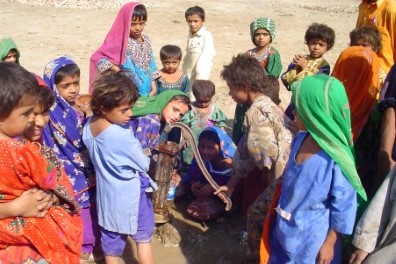UNICEF was looking for an opportunity to collaborate with a renowned institution in the field of climate change, focusing on water, to facilitate the development a framework which would encompass climate change and UNICEF’s Water, Sanitation and Hygiene (WASH) programmes. This led them to GWP, which responds to the climate change challenge through the Global Water, Climate and Development Programme (WACDEP).
“GWP has traditionally focused on water resources management and this collaboration with UNICEF will help to close the loop of the water resources cycle,” says Alex Simalabwi, GWP’s Global WACDEP Coordinator.
In the new partnership, GWP will benefit from UNICEF’s comparative advantage as a WASH Sector leader with a long history of involvement at the global, regional and country level, working at both policy level and service delivery. For UNICEF, the partnership will facilitate the development of a solid WASH-CCA framework.
For the first six months of the collaboration the new partners have agreed on four areas of cooperation:
- Development of a Strategic Framework for WASH and Climate Change Adaptation, for which the GWP Strategic Framework for Water Security and Climate Resilient Development will serve as a reference;
- Technical Briefs and guidance notes to go in-depth on some identified topics;
- Initial development and thinking around an interactive online toolkit to facilitate the implementation of the WASH-CCA Framework;
- Initial capacity training module to roll out the Framework.
The output of this work will provide practical guidance to UNICEF country offices working on WASH and climate change adaptation. With funding from the British Department for International Development (DFID), DGIS and the Swedish International Development Cooperation Agency (Sida), UNICEF will initially focus on nine countries for climate resilience: Bangladesh, Cambodia, Madagascar, Myanmar, Nepal, Niger, Pakistan, South Sudan and Yemen.
Photo: Pakistani children pumping water.

